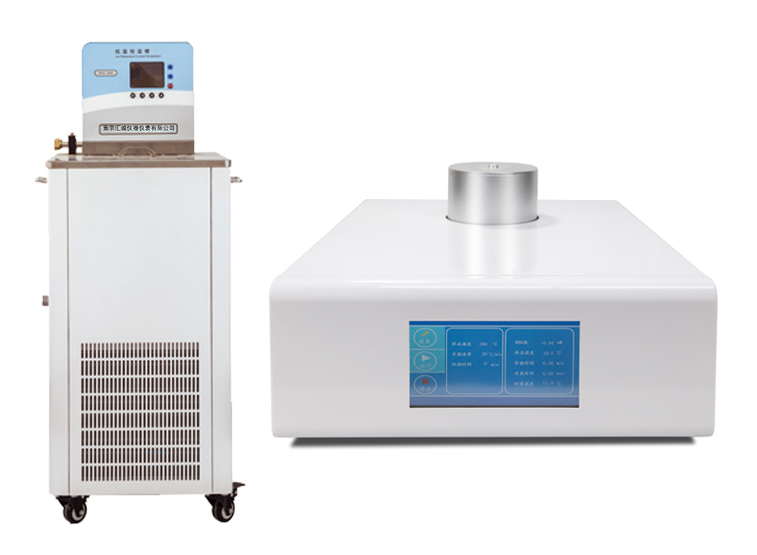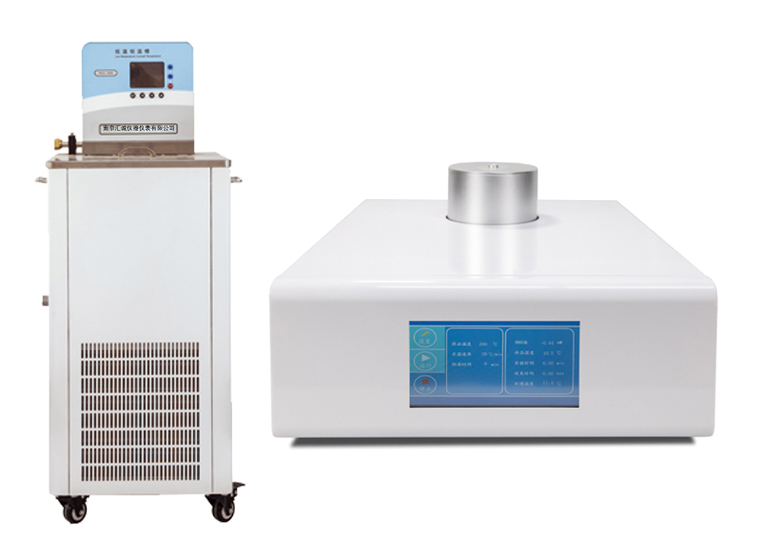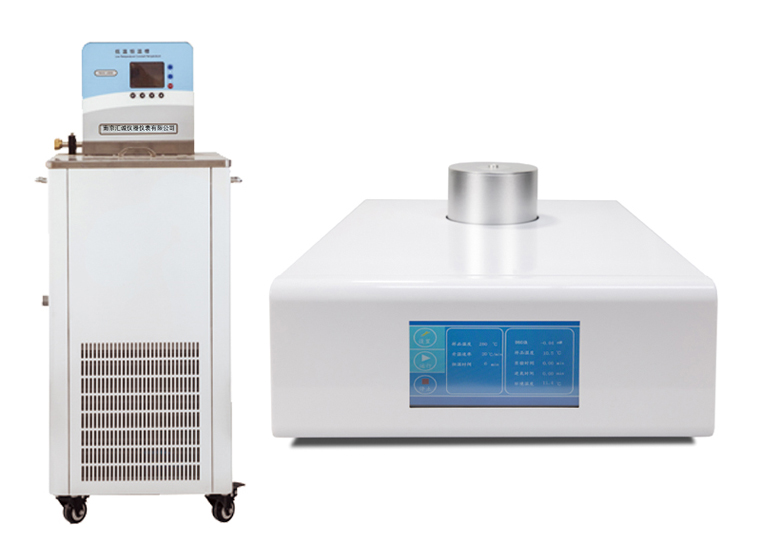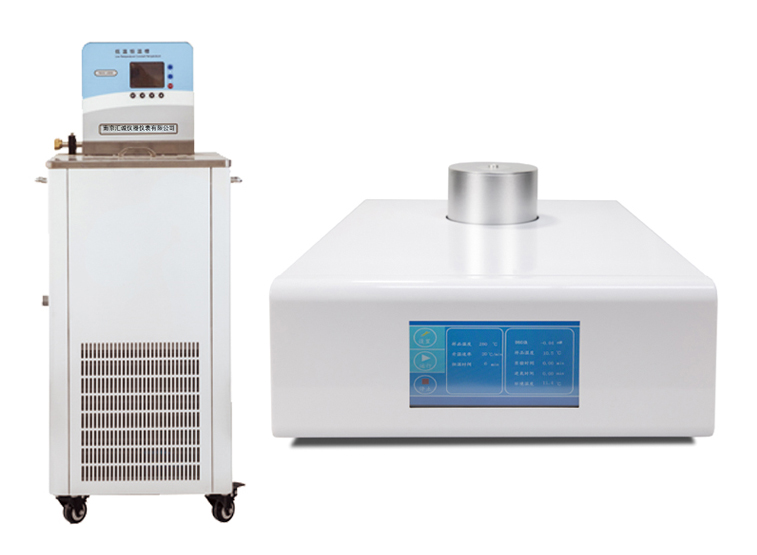The advantage of DSC in analyzing the crystallization rate of polypropylene
- Time:2020-06-18 08:59
- Source:未知
- popularity:
In the development of modern polymer materials science, the development of resin industry is particularly rapid, among which polypropylene (PP) is one of the fastest growing varieties of thermoplastic resin, and its high cost performance also makes it become the focus of business competition. Through certain technical means, it can also give it more excellent performance. The crystallization kinetics of β - directional crystallized PP resin was further studied by differential scanning calorimetry, and the crystallization behavior of β - directional crystallized PP resin was compared with that of ordinary PP resin, and the superiority of its crystallization rate was obtained. Furthermore, the method of obtaining β - directional crystalline PP resin by polymerization in the reactor was evaluated from the microcosmic point of view of the crystallization process.
Basic principle of differential scanning calorimeter
Differential scanning calorimetry (DSC) is a technique to measure the relationship between power difference and temperature of the delivered substance and reference substance under the programmed temperature. When the temperature difference Δ t occurs between the sample and the reference material due to the thermal effect in the heating process, the current flowing into the compensating wire changes through the differential thermal amplification circuit and the differential thermal compensation amplifier. When the sample absorbs heat, the compensation amplifier immediately increases the current on one side of the sample; On the contrary, when the sample is exothermic, the current on one side of the reference increases until the heat balance on both sides and the temperature difference Δ t disappears. In other words, the thermal change of the sample during the thermal reaction is compensated due to the timely input of electric power, so what is actually recorded is the change of the difference between the thermal power of the sample and the two electrothermal compensations under the reference material with time t. If the heating rate is constant, what is recorded is the variation of thermal power with temperature T.
Application of differential scanning calorimeter:
(1)Identification of inorganic compounds, organic compounds, drugs and polymers and study of their phase diagrams.
(2)Determination of thermal stability and oxidation resistance.
(3)Chemical reaction studies the reaction of solid and gas, the determination of catalyst performance, reaction kinetics, reaction heat, phase transformation and crystallization process.
(4)Determination of purity, solid fat index, polymer quality, phase transformation of liquid crystal, glass transition and Curie point of materials, service life of materials, etc.
(5)Determination of mechanical properties of materials impact resistance, viscoelasticity, modulus of elasticity, loss modulus and shear modulus, etc.
Basic principle of differential scanning calorimeter
Differential scanning calorimetry (DSC) is a technique to measure the relationship between power difference and temperature of the delivered substance and reference substance under the programmed temperature. When the temperature difference Δ t occurs between the sample and the reference material due to the thermal effect in the heating process, the current flowing into the compensating wire changes through the differential thermal amplification circuit and the differential thermal compensation amplifier. When the sample absorbs heat, the compensation amplifier immediately increases the current on one side of the sample; On the contrary, when the sample is exothermic, the current on one side of the reference increases until the heat balance on both sides and the temperature difference Δ t disappears. In other words, the thermal change of the sample during the thermal reaction is compensated due to the timely input of electric power, so what is actually recorded is the change of the difference between the thermal power of the sample and the two electrothermal compensations under the reference material with time t. If the heating rate is constant, what is recorded is the variation of thermal power with temperature T.
Application of differential scanning calorimeter:
(1)Identification of inorganic compounds, organic compounds, drugs and polymers and study of their phase diagrams.
(2)Determination of thermal stability and oxidation resistance.
(3)Chemical reaction studies the reaction of solid and gas, the determination of catalyst performance, reaction kinetics, reaction heat, phase transformation and crystallization process.
(4)Determination of purity, solid fat index, polymer quality, phase transformation of liquid crystal, glass transition and Curie point of materials, service life of materials, etc.
(5)Determination of mechanical properties of materials impact resistance, viscoelasticity, modulus of elasticity, loss modulus and shear modulus, etc.
Recommendations
- 2020-06-23Test of enthalpy of melting and crystallization of non ferrous materials differen
- 2020-06-22Test of induction period of polyolefin oxidation
- 2020-06-19Dispersion of carbon black in polyethylene geomembrane
- 2020-06-18The advantage of DSC in analyzing the crystallization rate of polypropylene
- 2020-06-16Determination of thermal stability (oxidation induction period) of plastics indus
- 2020-06-16Application of thermal analysis in polymer materials
- 2020-06-16Application of differential scanning calorimeter (DSC) in drug analysis
- 2020-06-15The application of DSC method in curing degree test of thermosetting resin
Recommended products
-
 DSC-600C Differential Scanning
Differential Scanning Calorimetry (Heat Flow DSC), as a classical therm...
DSC-600C Differential Scanning
Differential Scanning Calorimetry (Heat Flow DSC), as a classical therm... -
 DSC-600C Differential Scanning
Differential Scanning Calorimetry (Heat Flow DSC), as a classical therm...
DSC-600C Differential Scanning
Differential Scanning Calorimetry (Heat Flow DSC), as a classical therm... -
 DSC-600C Differential Scanning
Differential Scanning Calorimetry (Heat Flow DSC), as a classical therm...
DSC-600C Differential Scanning
Differential Scanning Calorimetry (Heat Flow DSC), as a classical therm... -
 DSC-600C Differential Scanning
Differential Scanning Calorimetry (Heat Flow DSC), as a classical therm...
DSC-600C Differential Scanning
Differential Scanning Calorimetry (Heat Flow DSC), as a classical therm...
Solution
hot-sale product
contact us
- Nanjing Huicheng Instrument Co., Ltd
- Service hotline:025-52702696
- after-sale service:025-52702696
- E-mail:njhcyq@163.com
- Company address:Building 3, runjing Technology Plaza, No.9, Tianhang West Road, Jiangning District, Nanjing

